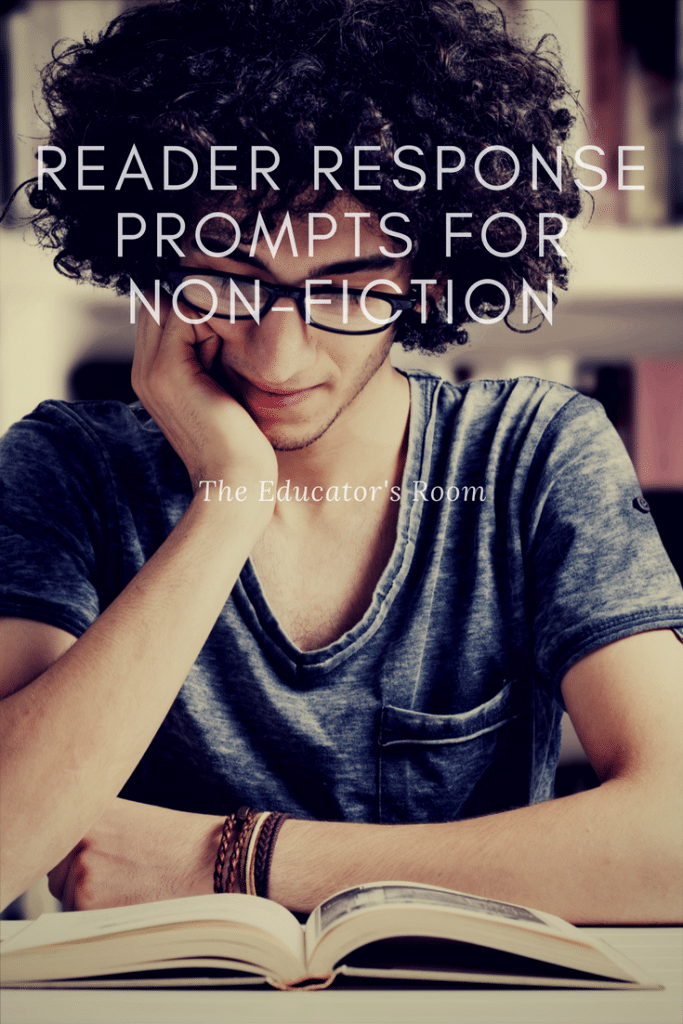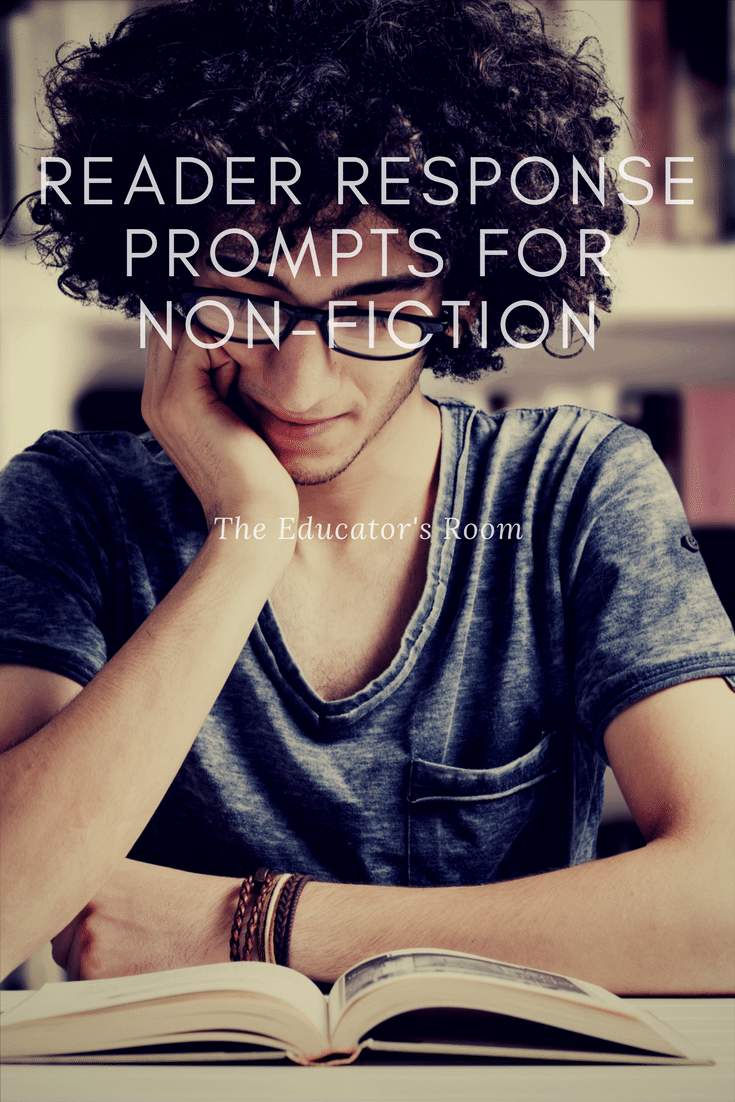In March, I shared how I create reading response prompts for my 8th-grade ELA students. Since then, I have gotten inquiries from other content areas about what sorts of prompts are appropriate for nonfiction texts. Many of my students choose to read nonfiction, but sometimes, we all read nonfiction together. Other content areas tend to use nonfiction exclusively, and the Common Core State Standards suggest that 70% of the reading students do be nonfiction (this reading is not exclusive to ELA but across the span of all of their courses).
Below are twenty reading response prompts I use frequently when my students are asked to read nonfiction texts. When creating prompts for nonfiction, I keep in mind the skills students need to read closely and think critically: What is Written (summary), How it is written (author choice), Why it is written (author message/purpose), and Connections (to the reader and the wider world).
When creating prompts for nonfiction, I consider the skills students need to read closely and think critically.
Reading Response Prompts
- Copy a short passage that you found to be interesting. Explain what made it interesting for you.
- Write a summary of what you read today.
- What confused you about what you read? As you read further, did your confusion dissipate? Why or why not?
- Explain some of the things that you have learned so far that you are not likely to forget in the near future.
- What does this text NOT tell you? What does it assume? What does it fail to assume?
- Why did you choose the book/topic you read about today?
- Compare/Contrast this text with another one using a Double-Bubble Map.
- What was the author’s purpose, and how do you know?
- Who is the audience, and how do you know?
- What is the tone of the text, and how do you know?
- What are the most relevant supporting details from your text? Why?
- How is the book/text you read today structured? Why do you think the author choose to do it that way?
- Do you feel like the author is believable? Does he/she write with any bias? Explain.
- What would you change about the book/text you read today? Explain.
- Create a Cause-Effect map of the causes/problem/effects.
- What connections did you make while reading today?
- What information was already familiar to you?
- What two important things will you remember from today’s reading?
- What is something you would like to share with someone else? Why?
- What more do you want to know about the topic? Why?
Students tend to approach content-specific nonfiction or other informational texts as if it is intrinsically more difficult than reading fiction. As seasoned readers, we know that this is not necessarily true. By posing prompts such as the above to your students, you help them break down what they read and where their confusion was. You also allow them to have a voice in evaluating the relevance and effectiveness of the text.
Utilizing prompts such as these often enough also helps students habituate to questioning nonfiction. I think students see nonfiction as “truth” and you don’t question truth; however, as adults we know that, depending on author’s purpose, facts can be left out and biased words can be used so that, while not false, it’s not all the truth. Teaching our students to question while they read will be build more critical readers and thinkers.






I am looking for authentic ways to interact with literature, and informative texts in particular. This is helpful, thank you.